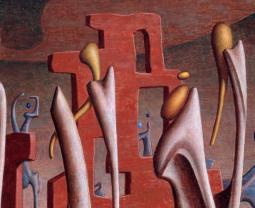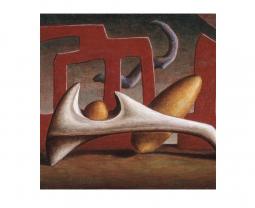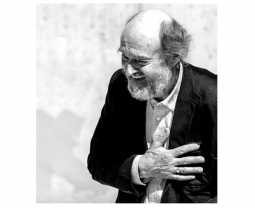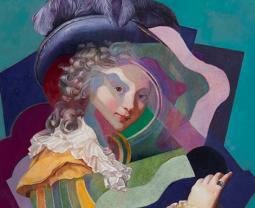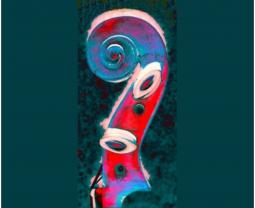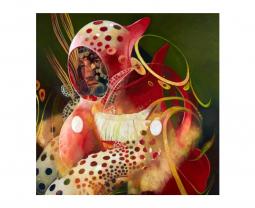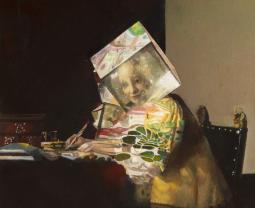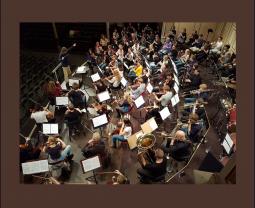Interconnected Musicking
O/Modernt is the hub not only of a core group of very special musicians but also artists and thinkers from many fields. Academy O/Modernt is an educative platform where young artists musicians are mentored not only by world-class professionals in their respective instruments but also by the leading thinkers of our time: historians, philosophers, ecologists, theologians, monks, poets and more. With its aesthetic ideals echoing those of the ancient Greek academies, the O/Modernt Academy will nurture the artists of tomorrow to become what the citizens of Ancient Greece called ‘musicians’—honest, responsible, tolerant, cultured, intellectually open and creative members of society. The curriculum will reflect this philosophy in a musical tutelage grounded in a thorough knowledge of the Humanities: INTERCONNECTED MUSICKING.
Musicking (described by Christopher G. Small in his book of the same title) is participating in music in any capacity. It is an active way in which we relate to the rest of the world and establishes a set of non-hierarchical relationships not only between those organized sounds which are conventionally thought of as being the stuff of musical meaning but also between the people who are taking part, in whatever capacity, in the performance. At the heart of Musicking is the loosening of hierarchical structures in the ecosystem of music and the barriers that divide the different ‘actors’ (composer, performer, listener, technician etc.). O/Modernt believes that removing these barriers between the different roles in musicking is vital to the livelihood of the artform.
Interconnectivity is a concept used in numerous fields and signifies that all parts of a system interact with and rely on one another simply by the fact that they occupy the same system, and that a system is impossible to understand through analysis of its individual parts alone. O/Modernt believes that exploring and fostering the interconnectedness of the musical ecosystem is vital for the aspiring musician to develop their practice in a way that is intimately related to the world we live in.
At the heart of the new academy are three guiding pillars
HOLISTIC: An approach to education which fosters the development of free, morally responsible, compassionate and well-rounded individuals
PERSON-CENTRED: Teaching starts from where the individual pupil is, both in terms of ability and psychologically; the creative and artistic personality of each pupil is nurtured on a one-to-one basis.
SPONTANEOUS AND CREATIVE: A pedagogy that guides each pupil's own creativity through his or her spontaneous engagement with the materials at hand.
Every day is a surprise. There are confirmations of an interconnectivity and synchronicity which inspire, titillate and confirm the inherent comedy of the universe Billy Zane
The act of musicking establishes in the place where it is happening a set of relationships, and it is in those relationships that the meaning of the act lies. ‘Musicking’ by Christopher Small
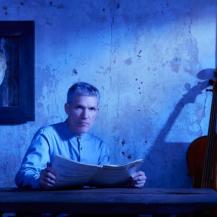
Matthew Barley's musical world has no geographical, social or stylistic boundaries. His activities in performance, improvisation, cross-disciplinary projects, composition, and pioneering community programmes have developed to form a uniquely eclectic international career. He has been described as 'the world's most adventurous cellist' and is as comfortable with core-classical repertoire and improvisation as he is in a night-club or the Amazon rainforest.
'Fortunate to be doing what I dreamed of doing as a child; I try to find a way to play whatever music I love - so I collaborate, improvise, juxtapose, arrange and rearrange.' Matthew's studies were at the Guildhall School in London, and the Moscow Conservatoire, and he is a passionate advocate of lifelong learning – constantly seeking to evolve and develop the art of life as a travelling musician living in a vibrant community of family and friends.
He has played in many of the world's great concert halls, given premieres by Pascal Dusapin, James MacMillan, Thomas Larcher, Dai Fujikura, Detlev Glanert and Nitin Sawhney; performed with Amjad Ali Khan, Matthias Goerne, the Labeque Sisters, Dima Slobodeniouk, Marin Alsop, Martin Frøst, Avi Avital, Jon Lord (Deep Purple), and the Nederlands Dans Theatre, records for Signum Classics and has appeared on tv and radio worldwide.
Matthew is married to Russian violinist Viktoria Mullova. He plays a Cesare Gigli cello from Rome, c.1750
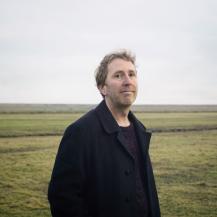
Ivar is a Dutch clarinet player who has enjoyed an extraordinary international chamber music career. With the Calefax Reed Quintet, he performed for thirty-three years in leading concert halls and at some of the most beautiful festivals in the world. As a musician, Ivar has become a very experienced listener. That is the skill he uses and continues to develop as he follows his current path, coaching teams and ensembles. Working especially with young professional musicians, Ivar guides the process of artistic development. He is almost uniquely qualified to shed light on the ways individual performers can negotiate group dynamics in order to form an ensemble that is capable of distinguishing itself in a way that is both natural and convincing. Ivar teaches at the Utrecht Conservatory and tutors at the Amsterdam String Quartet Biënnale.
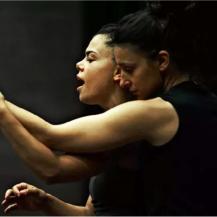
As an actor, singer and teacher, Emma Bonnici has worked with award-winning, internationally renowned performance and dance companies, as well as with acting schools, in both her native England and internationally. Key collaborations include Song of the Goat Theatre, Clod Ensemble, Fabien Prioville Dance Company, Two Women Machine Show, Mechanimal, Manchester Metropolitan University and Cabuia Teatro. Emma, who teaches performance, voice and movement, traces the origins of her work back to the Polish physical theatre inspired by Jerzy Grotowski, with particular emphases on performance integrity, polyphonic music and the immemorial narrative power of musical stories that are rooted in people, the landscape and ancient traditions.
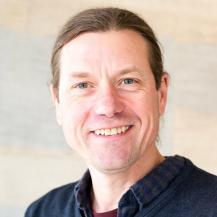
James Canton is a writer and lecturer who has written widely in creative non-fiction forms and taught on the MA in Wild Writing at the University of Essex since its inception in 2009 – exploring the fascinating ties between the literature and landscape of East Anglia. His first book, From Cairo to Baghdad (2011), explored the writings of British Travellers to Arabia from 1882 to 2003. Out of Essex: Re-Imagining a Literary Landscape (2013) was inspired by rural wanderings in the county. Ancient Wonderings: Journeys into Prehistoric Britain, which was published by William Collins in 2017, tells some remarkable tales of life in ancient Britain. His latest book, The Oak Papers, was published by Canongate in July 2020, and a new book, Grounded: A Journey into Place, is due for publication in March 2023.
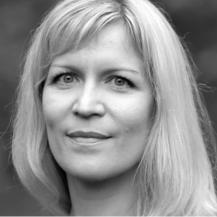
Kristina Kõrver joined the Arvo Pärt Centre in 2012. She was attracted by the opportunity to study Arvo Pärt’s work in a framework that combines music history with a range of other disciplines. Kristina researches archival materials related to Pärt’s compositions, documenting their role in the creative process and using the composer’s own accounts to uncover the rich layers that make up each work. She leads the centre’s educational programmes, lecturing on Pärt and liaising with visiting students. She also helped to curate the centre’s first permanent exhibition, If you seek from almost nothing... ( 2020), and she has edited and written works on Pärt. Having studied at the Estonian Academy of Music and Theatre, and Tallinn University, Kristina previously taught music history and worked for Muusika magazine.
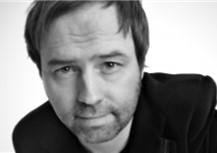
Tõnu Kõrvits, who was born in Tallinn in 1969, is a leading figure in Estonian contemporary music whose work is performed regularly in Estonia and around the world. A graduate of the Estonian Academy of Music and Theatre, he later studied in the Netherlands and Poland, and since 2001 he has been a professor of composition and instrumentation at the Estonian Academy of Music and Theatre. His Moorland Elegies was named Best Classical Album at the Estonian Music Awards (2017), and in 2015 he was made an honorary citizen of Clarksdale, Mississippi in recognition of his own music and his work in aid of preserving the Blues.
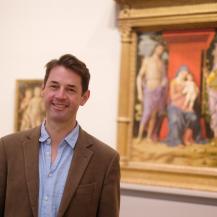
Ben Quash joined King’s College London in 2007 as its first Professor of Christianity and the Arts. Prior to that, he was a Fellow of Fitzwilliam College and then of Peterhouse, Cambridge, and a lecturer in the Faculty of Divinity in the University of Cambridge. He is currently directing a tenyear project to create an online Visual Commentary on Scripture (thevcs.org). He runs an MA in Christianity and the Arts in association with the National Gallery, London, and broadcasts frequently on BBC radio. He is Canon Theologian of both Coventry and Bradford Cathedrals. His publications include Abiding: The Archbishop of Canterbury’s Lent Book 2013 (2012) and Found Theology: History, Imagination and the Holy Spirit (2014).
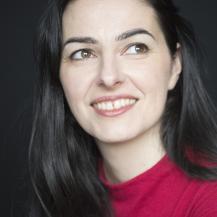
Described by the Washington Times as ‘exciting, deeply moving’, the music of the Bulgarian composer Dobrinka Tabakova has been featured at festivals and concert halls around the world. The first album of her work, String Paths, was nominated as the Best Classical Compendium at the 2014 Grammys, and a CD of her choral music (performed by Truro Cathedral Choir and the BBC Chamber Orchestra) was Gramophone Magazine’s Critic’s Choice in 2019. She was honoured for her anthem for Queen Elizabeth II’s Golden Jubilee, and won first prize at the Sorel Choral Composition in New York. In 2021 she completed her orchestral Earth Suite for the BBC Chamber Orchestra, and her violin concerto The Patience of Trees was premiered at Manchester International Festival with Hugo Ticciati and Manchester Camerata. Dobrinka has lived in London since 1991.
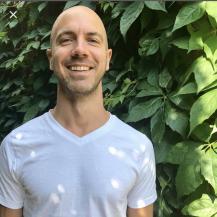
After years of exploring different healing modalities and body works, Simon teaches Qigong as a way of resetting the body, along with Theta and vortex energy healing as paths to emotional and psychological well-being. He also trains craniosacral therapists at the London College of Craniosacral Therapy. Simon is fascinated with inner process and how they play out in our lives. His background in classical music has honed his innate knowledge of the mental, emotional and physical stresses and strains associated with demanding lifestyles. Over the years, Simon’s work has taken him around the world and given him insights into different peoples and cultures – experiences that have fuelled his desire to help people who are in search of healing and a feeling of security in their own bodies. He trusts deeply in the innate capacity of all of us to heal ourselves and is dedicated to creating the safety and trust that are needed in order for this to arise effortlessly in each and every one of us.
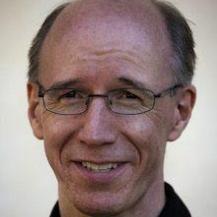
English-born conductor Mark Tatlow is currently writing a doctoral thesis at the University of Gothenburg on the decolonising of eighteenth-century vocal music. Previously Artistic Director at Drottningholms Slottsteater and Professor of Musical Studies at the University College of Opera, Stockholm, Mark is a co-founder of Performing Premodernity, a research project based at Stockholm University. Recent performances include compiling and conducting Georgiana, a new award-winning eighteenth-century opera pasticcio (Buxton, UK), conducting and staging Purcell’s Dido and Aeneas for the Stift Festival (NL), performing Rousseau’s Pygmalion and Le Devin du Village at Confidencen (SE), and conducting at the Trigonale Festival (AT). In June he will lead the first modern revival of Philip Johnsen’s Æglé (1774) at the Stockholm Early Music Festival. Mark was awarded the honorary medal of the Friends of Drottningholms Slottsteater in 1996, the Wallenstam Prize in 2008, and this year received the prestigious Gustavian Scholarship from the Swedish Academy.
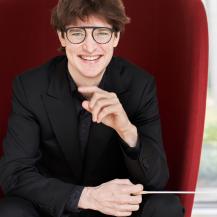
As violinist, leader and conductor, Hugo Ticciati imbibes all possible forms of creativity, whether it be performing world premieres in prestigious venues, improvising with monks in India, or devising innovative programmes for O/Modernt. Alongside his passion to discover and learn from the music of previous epochs and non-western traditions, Hugo embraces the world of contemporary music. To date, over forty works have been written for and dedicated to him by a host of eminent composers, including Erkki-Sven Tüür, Pēteris Vasks, Victoria Borisova-Ollas, Albert Schnelzer and Dobrinka Tabakova. Hugo frequently gives masterclasses and lectures on music-related subjects both at Scandinavia’s leading specialist music school Lilla Akademien, where he holds the post of Deputy Artistic Director, and other educational institutions around the world.
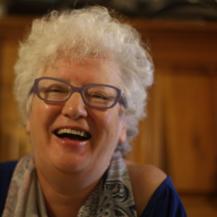
At the age of seventeen Elizabeth Wilson travelled to Moscow, where she studied the cello with Mstislav Rostropovich at the Moscow Conservatoire. Seven years later she returned to her native London to pursue a career as a soloist, chamber musician and teacher. With a particular focus on contemporary music, she has worked with numerous prominent composers, including Arvo Pärt, and has had works dedicated to her by Edison Denisov, Alexander Raskatov and Vladimir Tarnopolsky to name just three. A founder member of the Xenia Ensemble, she has lived near Turin for twenty years. As a musicologist, Elizabeth has written about Shostakovich, Rostropovich and Jacqueline du Pré, and she has given talks, masterclasses and seminars around the world.
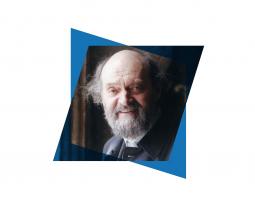
Inspired by ARVO PÄRT
Three webinars and a field trip to the Arvo Pärt Centre in Estonia.
Three Aspects of Pärt
God, Nature and History
Three webinars focus on themes that are intimately linked to the music and philosophy of Arvo Pärt. Ben Quash discusses the theological underpinnings of Pärt’s epiphanic soundworld, while Elizabeth Wilson gives some fascinating insights into the Soviet-era context of Pärt’s formative years. Stepping sideways into the realm of nature, James Canton reflects on the wisdom and joy of a sympathetic connection with trees.
Friday 22 April 17:30 CEST
Ben Quash
PURGATION AND ILLUMINATION | A Theological Appraisal of Pärt’s Deep Surfaces
Friday 13 May 17:30 CEST
James Canton
THE PATIENCE OF TREES
Friday 20 May 17:30 CEST
Elizabeth Wilson
THE AVANT-GARDE ON THE PERIPHERY | Musical experiment in the republics of the Soviet Union during the 1960s and 1970s
Three Aspects of Pärt
Musical Field Trip to the Arvo Pärt Centre
To complement the series of webinars that took place in May 2022, O/Modernt will lead a group of students on a field trip to the Arvo Pärt Centre in Estonia, located in the coastal village of Laulasmaa, some 35km to the west of Tallinn. The centre is a tranquil meeting place, where musicians, researchers and music lovers can explore Pärt’s music and his complex spiritual and intellectual universe, and also inquire into their own relationship with art, nature and life itself.
Concert
2 Jul 2022
5:00 p.m.
Arvo Pärt Centre, Estonia
Artists
Ivar Berix clarinet
Hugo Ticciati violin
Matthew Barley cello
Johan Bridger percussion
O/Modernt New Generation
To apply, please email us at academy@omodernt.com
